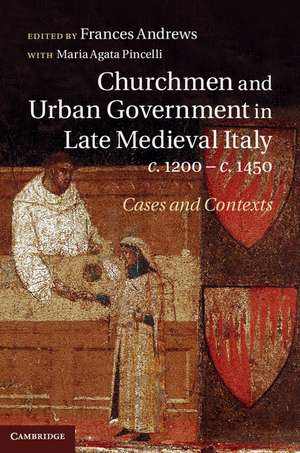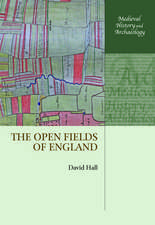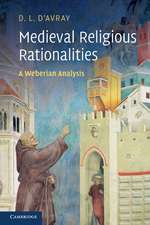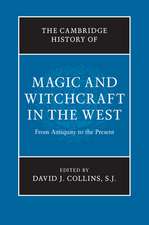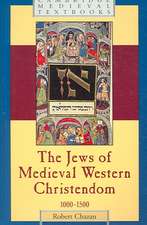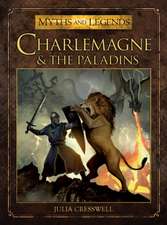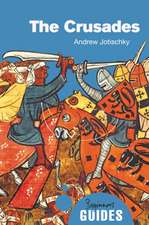Churchmen and Urban Government in Late Medieval Italy, c.1200–c.1450: Cases and Contexts
Editat de Frances Andrews Cu Agata Pincellien Limba Engleză Hardback – 27 noi 2013
Preț: 759.99 lei
Preț vechi: 883.71 lei
-14% Nou
Puncte Express: 1140
Preț estimativ în valută:
145.44€ • 157.93$ • 122.17£
145.44€ • 157.93$ • 122.17£
Carte tipărită la comandă
Livrare economică 22 aprilie-06 mai
Preluare comenzi: 021 569.72.76
Specificații
ISBN-13: 9781107044265
ISBN-10: 110704426X
Pagini: 426
Ilustrații: 10 b/w illus. 2 maps
Dimensiuni: 157 x 235 x 32 mm
Greutate: 0.75 kg
Ediția:New.
Editura: Cambridge University Press
Colecția Cambridge University Press
Locul publicării:New York, United States
ISBN-10: 110704426X
Pagini: 426
Ilustrații: 10 b/w illus. 2 maps
Dimensiuni: 157 x 235 x 32 mm
Greutate: 0.75 kg
Ediția:New.
Editura: Cambridge University Press
Colecția Cambridge University Press
Locul publicării:New York, United States
Cuprins
1. Introduction Frances Andrews; 2. Bishop and commune in twelfth-century Cremona: the interface of secular and ecclesiastical power Edward Coleman; Part I. Urban Case Studies: 3. Ut inde melius fiat: the commune of Parma and its religious personnel Frances Andrews; 4. The employment of religious orders in Piacenza between the thirteenth and the fourteenth century Caterina Bruschi; 5. Cremona: a case study Christoph Friedrich Weber; 6. Employment of religious in the administration of the Modena commune from the twelfth to the fifteenth century Pierpaolo Bonacini; 7. Verona: a model case in the study of relationships between members of religious orders and the government of the city Maria Agata Pincelli; 8. The tasks assigned to the Humiliati by the commune of Bergamo (twelfth–fourteenth centuries) Maria Teresa Brolis and Andrea Beneggi; 9. Religious and public life: Lucca, a case study Ignazio del Punta; 10. Pistoia: a case study Sarah Tiboni; 11. Religious in the service of the commune: the case of thirteenth- and fourteenth-century Perugia Giovanna Casagrande; 12. On the trail of religious in the medieval communes of Viterbo and Tuscia Eleonora Rava; 13. Venetian exceptionalism? Lay and religious in Venetian communal governance Dennis Romano; Part II. Ecclesiastial Perspectives: 14. Cistercians as administrators in the thirteenth-century Italian communes Paolo Grillo; 15. The Cistercian monk and the casting counter William R. Day, Jr; 16. Hermits for communes: the Camaldolese in the service of the communes of central and northern Italy in the thirteenth to fifteenth centuries Cécile Caby; 17. Cooperative intervention: sermons supporting the governing authority in fifteenth-century Italy Stefan Visnjevac; Part III. Comparisons beyond Central and Northern Italy: 18. Religious in secular offices in late medieval southern Italy Hubert Houben; 19. Interactions between lay and ecclesiastical offices in Sardinia Andrea Puglia; 20. The abbot and public life in late medieval England Martin Heale; 21. Epilogue Frances Andrews.
Descriere
Major new study of secular-religious boundaries and the role of the clergy in the administration of Italy's late medieval city-states.
